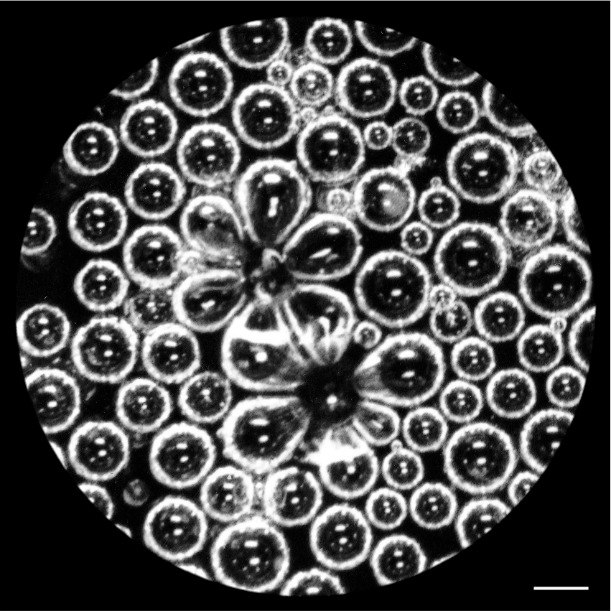As you break open the champagne this Christmas, listen to the sound of the bubbles suggests Jonathan Riley.

Earlier this week I watched Dr. Helen Czerski’s programme about the science of bubbles. One of the things she talked about was how a bubble makes a sound as it rises through a liquid. We know that the sound is caused by the vibrations, but what is it that causes a bubble to oscillate?
It turns out that it’s the bubble itself. Specifically, the property of bubbles that means that they want to take on the shape of least energy around a volume. For a solitary bubble this is a perfect sphere. When the bubble breaks away from the main column of gas it is initially elongated in shape and pointed towards one end. Bubbles don’t like being this pointed shape, so the liquid squirts up in a jet inside the bubble to remove the corner. This squeezes the bubble and sets it oscillating producing sound. The pitch of the sound is related to the size of the bubble. The larger the bubble, the lower the frequency of the sound, as this clip explains:
Another way in which bubble acoustics is used is in ultrasound scans. Ultrasound scans form an image of the insides of the body by beaming high frequency sound into the body and measuring the difference in time between the reflected waves coming back. This time difference is created due to the different densities of the objects they are imaging. Since these are often quite similar, the images are often unclear. By injecting tiny bubbles into a particular area of the body, the image of that area can be seen much more clearly. This is because bubbles reflect more sound than soft tissues. This technique is particularly useful in viewing blood vessels.
The fizzing of champagne comes not from the birth of the bubble but at its death when it bursts. Something that is the same whether you buy cheap sparkling wine or an expensive Dom Perignon.
Jonathan Riley is an Audio Acoustics student at The University of Salford
2 responses to “Why do bubbles sound bubbly?”
Reblogged this on Notes from an Acoustician.
I am working on an ap which will enable me to correlate the voice pitch and frequency to the number of bubbles generated . These bubbles will have a real and shadow image . The subject will choose the colour from the pallets , and utter four words of his choice in repetion for 15 Sec , this will generate the bubble in deception with the shadow . How many real bubbles are burst by the tactile sensation will infer the degree of awareness . Please help me